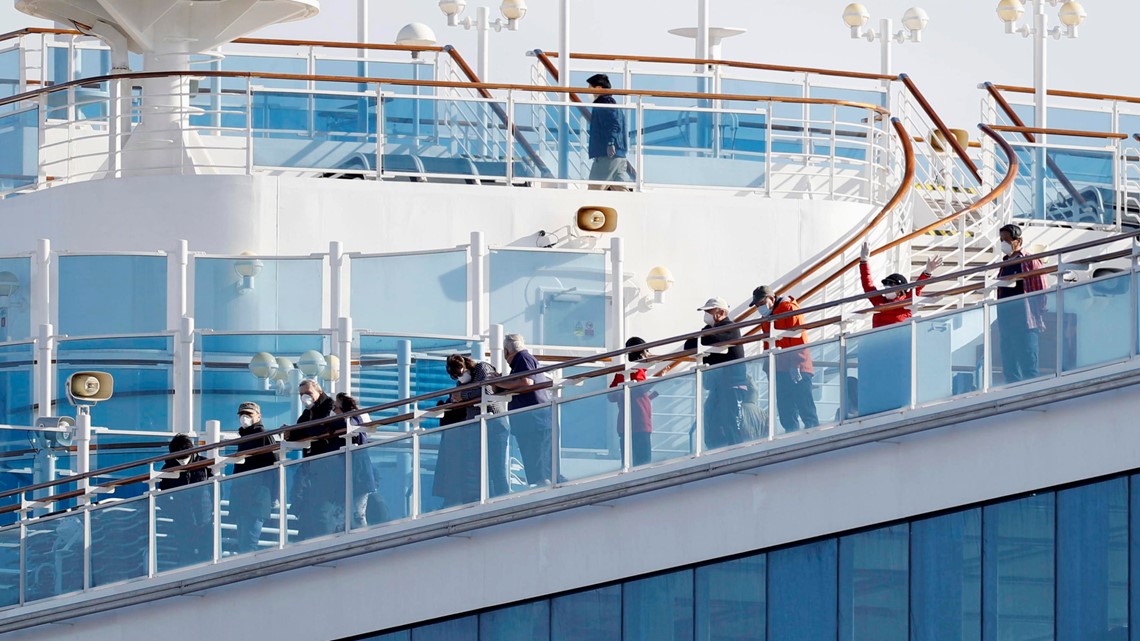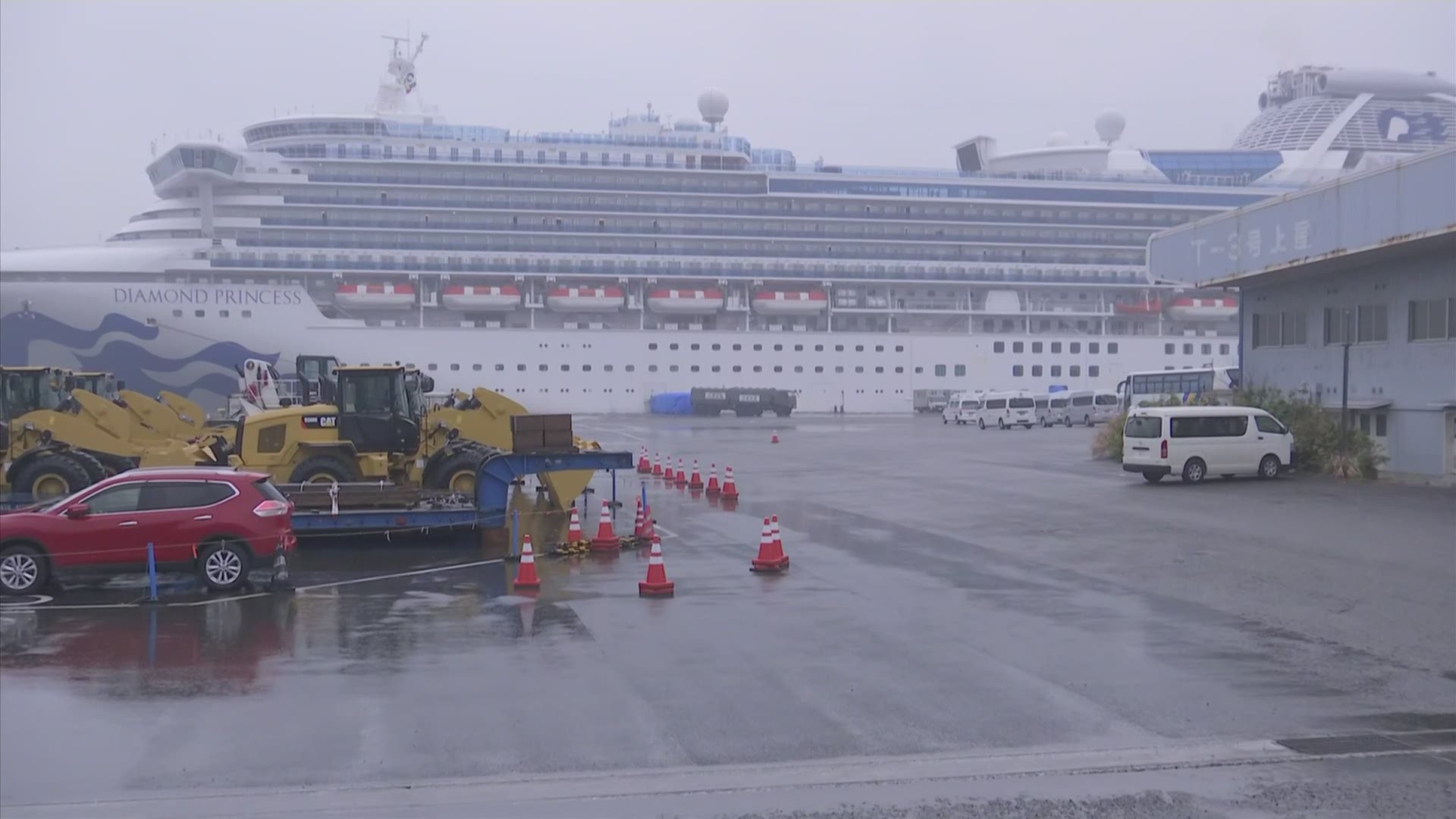TOKYO, Japan — (AP) — Americans in Japan are trading one quarantine for another. The U.S. says Americans aboard a quarantined ship will be flown back home on a chartered flight Sunday, but that they will face another two-week quarantine.
About 400 Americans are aboard the Diamond Princess cruise ship, which has docked at Yokohama, southwest of Tokyo. So far, 285 people from the ship have tested positive for a new virus.
The group is cutting short a 14-day quarantine on the Diamond Princess to be whisked back to America. But they will have to spend another quarantine period at a U.S. military facility to make sure they don't have the new virus that's been sweeping across Asia.
The U.S. Embassy said Sunday that Washington is flying chartered planes to Japan to evacuate Americans because the passengers and crew members on board the Diamond Princess are now at a high risk of exposure to the virus.
Around 380 Americans are on the cruise ship.
The viral outbreak that emerged in China has infected more than 69,000 people globally, killing 1,670.
The passengers have been quarantined on the ship since Feb. 5. That 14-day quarantine is due to end Wednesday.
The U.S. Embassy in Tokyo says the aircraft will arrive in Japan late Sunday.
After arriving in the U.S., all will need to go through another two weeks of quarantine at Air Force bases in California or Texas.
A total of 68,500 people have been confirmed with the virus.
Italy announced on Sunday that it will send a plane to Japan to bring back the 35 Italians aboard the Diamond Princess. The cruise ship has had 355 passengers and crew test positive for the new virus.
More than 100 Germans evacuated from the hard-hit Chinese city of Wuhan, the epicenter of the coronavirus outbreak, were set to end their prescribed 14-day quarantine period on Sunday.
They have been kept isolated at a military base in the southern town of Germersheim. None of them have tested positive for the disease, according to the German news agency dpa.
Chinese President Xi Jinping's early involvement in the virus outbreak is raising questions.
As the country reported a drop in new COVID-19 cases, it seems its leaders were aware of the potential epidemic beforehand.
A recent speech by Xi that has been published by state media indicates for the first time that he was leading the response to a new virus outbreak from early on in the crisis.
The publication of the Feb. 3 speech was an apparent attempt to demonstrate the Communist Party leadership acted decisively from the beginning. It also opens Xi up to criticism over why the public was not alerted sooner.
China on Sunday reported a drop in new virus cases for the third straight day.
The National Health Commission says there were 2,009 new cases in mainland China, bringing the total to 68,500. The death toll topped 1,600.
The World Health Organization has named the illness COVID-19, referring to its origin late last year and the coronavirus that causes it.


The viral outbreak is also spooking Asian places of worship into a new policy for now: no handshakes.
Temporary restrictions and dwindling crowds in places of worship across Asia have underscored the extent of the scare over the viral outbreak that has permeated many aspects of life in the religiously diverse region.
Around Manila in the Philippines, Filipino Catholics have been asked to refrain from shaking or holding hands during Mass.
Buddhist temples, Christian churches and Muslim mosques have been ordered closed in mainland China, where the new coronavirus strain was first detected.
In Hong Kong, public Masses have been suspended for two weeks.
Discouraging the devout from going to the places of worship can be highly sensitive, and some consider it as a test of faith.
Indonesia's health minister says a strong immunity, healthy lifestyle and prayers were the best weapons against the outbreak.

